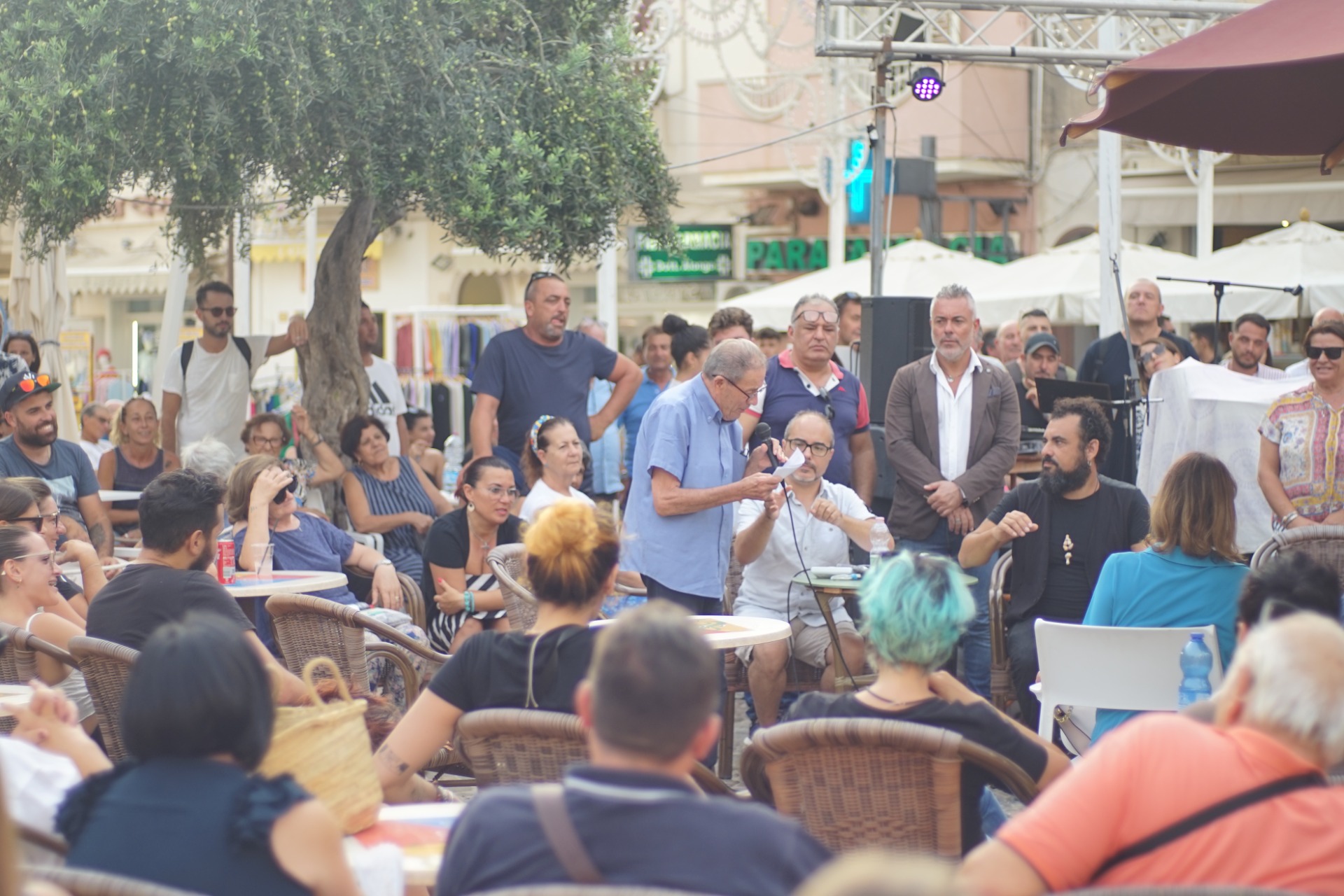"They moved the dust and found everything clean." - end of september 2023

At Favaloro pier, the Customs office, in conjunction with the assigning agency, relocated most of the boats that dominated the harbor's view throughout the summer. No landings were reported in Lampedusa, leaving (the Imbriacola) hotspot vacant for several days. Following recent adverse weather, individuals departing from Libya and Tunisia have been arriving on Lampedusa's shores since September 29.
After September 12, during which no operators from any active organizations were present at the hotspot (save for a few Red Cross workers managing extensive queues), the center once again became a restricted area, where residents couldn't freely enter or exit. "People remain inside because they have no interests to leave," stated the head of the Red Cross during an interview. She added, somewhat redundantly, "Yesterday we had more people than today, so I believe those who wish to sleep in a more protected area will be able to do so today."
On September 28, in a conspicuously empty Hotspot where even showers, bathrooms, and the kitchen were open for viewing, a delegation from the Agrigento Bar Council, accompanied by European lawyers and National President Francesco Greco, visited the facility. Their intent was to underscore the pivotal role of legal advocacy in rights protection, but no independent entities active on-site were encountered.
Former Prime Minister Giuseppe Conte visited Lampedusa on September 20, following appearances by Giorgia Meloni and Von der Leyen starting September 14. During his visit, Conte attended a public event organized by a group of citizens who had been staging a sit-in outside City Hall since September 12. They had also initiated a protest at the port days earlier.
"After 30 years of welcoming migrants, they repay us with plans to open a detention center on Lampedusa! In such a tight-knit community, such invasive measures are inexcusable," exclaimed the opposition leader during a public address. He added, "Meloni and visited to rationalize the public's shortcomings regarding migration and the reception system. They plan to dictate who can enter Italy, but from where? On the highways? Not from the sea!"
Post Meloni's remarks in Lampedusa and the subsequent release of recent decrees, the idea of repurposing the former military base in the Ponente region as a detention center became a tangible possibility. The discourses underscored systemic issues that affect Lampedusa residents daily, chiefly the denial of health care access. This isn't due to migration pressures but rather privatization policies and a lack of sector investment on Lampedusa.
"We've heard that money is coming. Some already has, but it's unclear where it's gone," commented Professor Giovanni Fragapane. "We need facilities to foster culture, not superficial visits that sweep issues under the rug. We need infrastructure, cinemas, multipurpose rooms!"

Contrastingly, the stance of Lampedusa's mayor and municipal administration diverged. Even though they were somewhat present during the port blockade protest, which sent military vehicles back to Sicily, the deputy mayor distanced himself from the sit-in outside the municipality. In a speech on September 24, the mayor unambiguously aligned himself with the government's policies. Without mentioning the healthcare system or culture, he defended the €45 million allotted to Lampedusa to "compensate us for the damage we've endured... it's given because of our migration issue." In a contradictory manner, he enumerated the primary projects the funds would support: downtown paving, outlying roads, town center parking, and fuel storage.
Sfax - Tunisia
After the political capitulation surrounding the hotspot collapse in Lampedusa spearheaded by Giorgia Meloni, the European Commission disclosed a financial aid package of €127 million to Tunisia under Kais Saied's leadership: €60 million for the public budget and €65 million for managing migration.
On September 15 and 16 in Sfax, a significant police operation evacuated Bab Jebli square, which had sheltered thousands from sub-Saharan African countries since early July. Illustrating Tunisia's dedication to curbing so called"illegal migration", several videos captured the police's actions. The Ministry of Interior's official page announced the resources used for anti-terrorism efforts. The highly propagandistic videos depicted hundreds in groups, scattered across olive groves in visibly destitute conditions.
"We, the Black community, are relegated to living in shrublands, amidst olive groves. Even animals don't endure these conditions," relayed Tike Chybuzar, a Nigerian guy encountered in early September. Numerous organizations condemned the police's violent operations executed in Sfax. Simultaneously, misleading content and xenophobic posts proliferated on social media, amplifying racial tensions since November 2022.In locales like el-Amra/Jebiniana and Lampedusa, mainstream media struggles to convey that these mass movements, and the arrival of individuals in desperate circumstances, are direct outcomes of prevailing migration policies and the very institutional interventions aiming to resolve them. European strategies, which emphasize outsourcing border controls to third countries, rarely realize their goal of curbing migration. More frequently, they inadvertently bolster authoritarian governments, stoke racial prejudices, and engender policies and practices that are discriminatory, brutal, and devoid of humanity in neighbouring nations.
